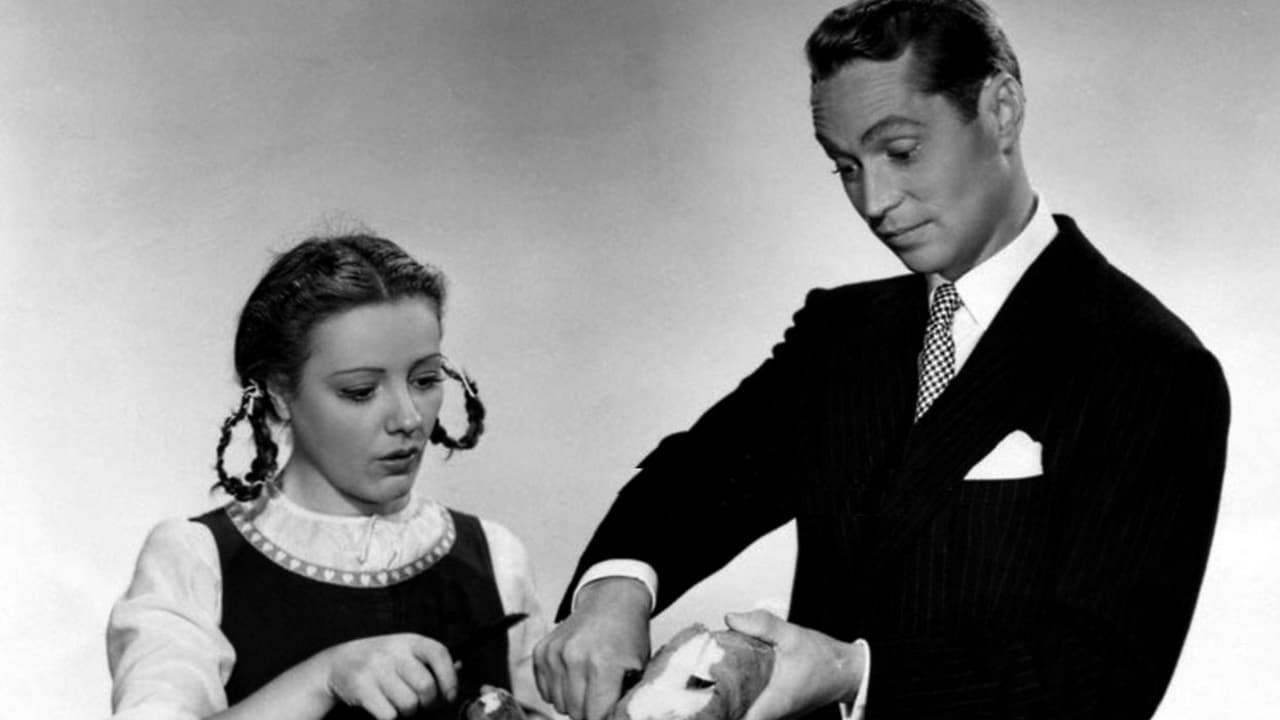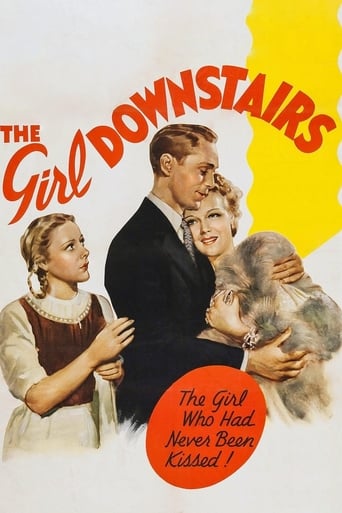SoftInloveRox
Horrible, fascist and poorly acted
Supelice
Dreadfully Boring
Beystiman
It's fun, it's light, [but] it has a hard time when its tries to get heavy.
Clarissa Mora
The tone of this movie is interesting -- the stakes are both dramatic and high, but it's balanced with a lot of fun, tongue and cheek dialogue.
rhoda-9
A pleasant enough ironing movie, this is quite annoying the more you concentrate on it. The plot is as flimsy as it is ridiculous, seeming more appropriate to a second-rate operetta, with lots of grimacing and winking. Why would Franchot Tone (looking quite dishy in chauffeur's uniform) need to court a scullery maid in order to see his girlfriend, the daughter of the house, whose father disapproves of him? This enormous mansion certainly has a telephone. And there is nothing to stop the daughter from going to Tone's house or to bars and cafes he frequents.
Then there is the rather unpleasant moral aspect--his pretense of courtship is very caddish behaviour. The social aspect (a sophisticated playboy in love with a girl who cannot read and has never made a phone call?) is as absurd as the maid's appearance--folk-dance costumes and pigtails that turn up the end (how? why?) like a clodhopper in a cartoon (but lots of fashionable makeup). The plot is so simple that, when it has clearly come to an end, it has to be extended by a pointless and unfunny chase sequence to eke out the movie.
It is also very pleasant to see Walter Connolly, the funniest exasperated man in pictures. But it is frustrating to see Reginald Gardner, Robert Coote, and Franklin Pangborn in roles that are too brief and ill written to exploit their talent.
Eleanor Knowles Dugan
Franciska Gaal came to stardom in Europe for her portrayal of Katharina in a much darker though no less romantic German film called Katharina Die Letzte -- Catherine the Last (a pun on Catherine the First, Empress of all the Russias). In the German version, Gaal as the schlub of a scullery wench is much dirtier, more clumsy, and totally believable as an overlooked bumpkin skivvy. Her metamorphosis through loving the blackguard cad is, therefore, more amazing and heartrending. Dear Franchot Tone is hardly believable as a immoral seducer, out to marry an heiress only for her money and willing to betray the innocent country girl to obtain his black ends. His German counterpart oozes villainy and smarminess, forced by Katherina's utter belief in his goodness to mend his ways until the ultimate scene. All the same jokes are there in the Hollywood version, scene for scene, but the morphing of the villain into a hero in the German version is what makes that film an exalting and memorable experience, traveling from dark cynicism to -- yes -- a happy Hollywood ending!
atlasmb
A case of mistaken identity (impersonation) drives this fluffy piece of frippery. The Girl Downstairs did not make much of an impression on me until Franciska Gaal, as Katerina, came on screen. I found her to be charming.This comedy does not delve very deeply into darker feelings or emotions (distrust, self-doubt, fear, disappointment, sadness), though they have a place in the story. Instead, the character of Katerina provides a disarmingly optimistic view of life that overrides all negativity.I found the supporting cast to be more than adequate. Especially Franklin Pangborn, whose character adds a level of levity that is not overdone.I recommend this film not despite its simplicity, but because of its simplicity, which allows the performance of Ms. Gaal to shine through.
Arthur Hausner
This film plays almost like a fairy tale with illiterate scullery maid Franciska Gaal, in her third and last starring role, getting involved with playboy Franchot Tone, who pretends to be a chauffeur just to get into her house and woo her boss' daughter, Rita Johnson. I enjoyed some of the comedy, with the best sequence being the taxicab Gaal buys Tone thinking he lost his job. Billy Gilbert sells her a dilapidated car that looked like it came out of a Laurel and Hardy Film - it falls apart as they drive! And it's so slow a kid on a bike grabs hold of it, not to have it pull him along, but to help pull it along. A very funny sequence. The pacing of the film is just right, but many of the comics in the supporting cast (Reginald Gardiner, Franklin Pangborn and Robert Coote) were wasted. However, Walter Connolly does his exasperated father routine perfectly. Gaal has a down-to-earth naive quality which endeared her to me, so I enjoyed the film. I wondered why she just quit making films altogether after this film.

